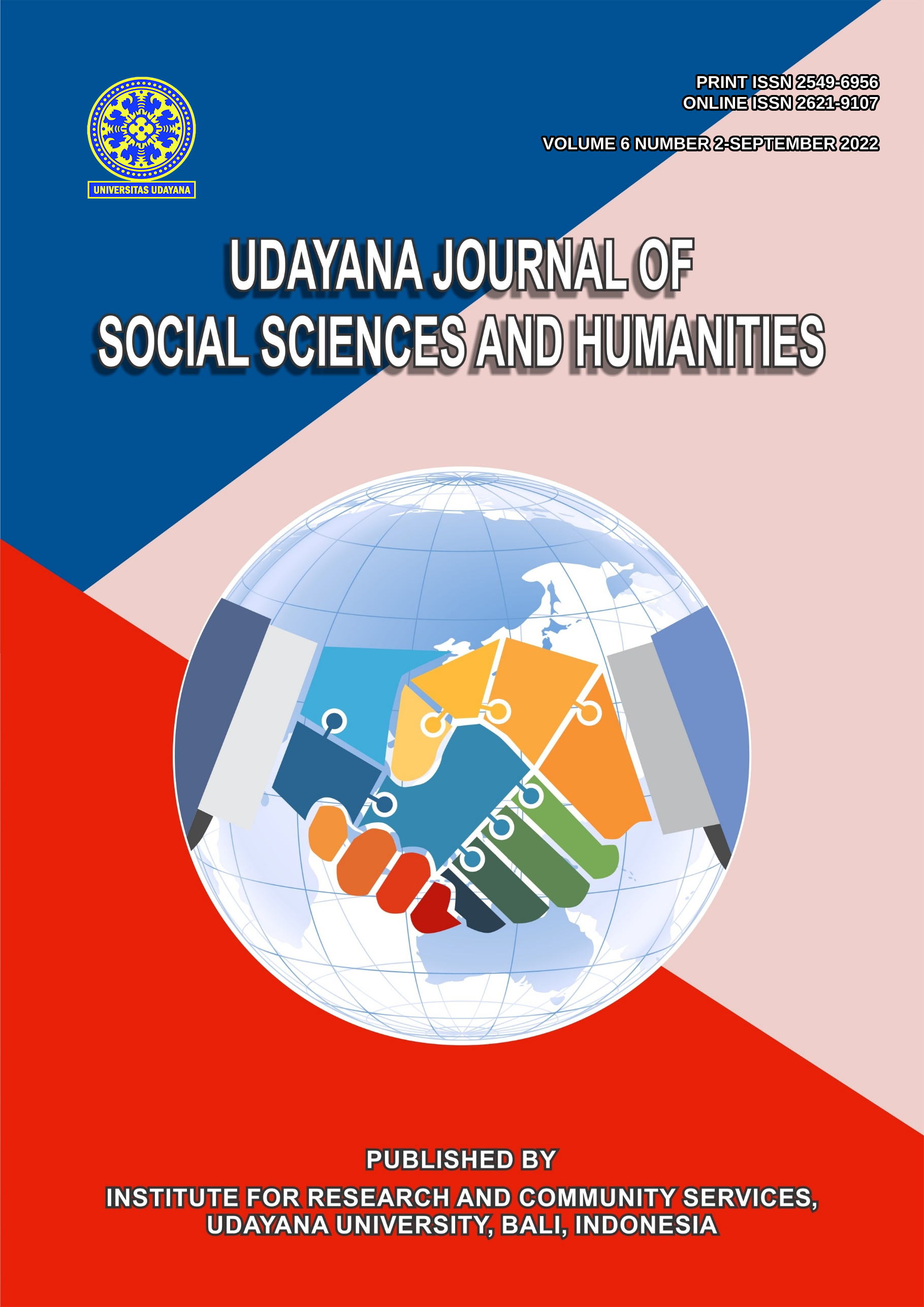Positive Politeness Strategies in “Ratatouille”
Abstract
This study entitled Positive Politeness Strategies in “Ratatouille” is interesting to be discussed as an object analysis due to the application of positive politeness strategies used in the social interaction. The aims were to analyze positive politeness strategies used by the characters, and to describe the factors influencing the characters chose positive politeness strategies. The data were taken from the script of the movie. The data were collected through documentation method by note-taking technique. The utterances which were used as the data were the utterances of the conversation between the characters which were applied the positive politeness strategies. Furthermore, the theory of politeness by Brown and Levinson (1987) used to analyze the positive politeness strategies and the factors influencing the choice of positive politeness strategies in the conversation between the characters in “Ratatouille” movie. Based on the theory mentioned above, there were fourteen strategies of positive politeness strategies were found among the characters’ dialogue in “Ratatouille” movie. Moreover, there were two factors influencing the choice of positive politeness strategies, namely the payoffs and the relevant circumstances: sociological variables.






